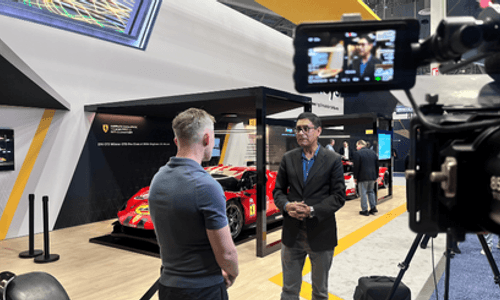
Videos
Tech Flix: Data's Untold Story
The Price of Progress: Tech, Data, and Our Planet
The glittering promise of technological progress, from the entertainment spectacle of Las Vegas's Sp...
Tech Flix: Founders in the Age of Ai
Is AI distorting and transforming the principals of company building?
The latest Tech Flix documentary hosted by Technology Evangelist David Savage d...
Tech Flix: Tackling underinvestment in female-led business
How can we reverse the chronic lack of investment in female-led businesses?
A strong industry and economy is built on diversity. But since the pandemi...
Tech Flix: Robotics and AI: A future you're not prepared for
Are robots coming for your job?
Just over half of you feel prepared for the changes being brought about by AI. Our Group Technology Evangelist David ...
Digital Leadership Report 2023 - Technology Discussion
What's stopping organisations from getting the most out of their data? In the third of our three Digital Leadership Report in depth videos, David Sava...
Digital Leadership Report 2023 - People Discussion
When it comes to hiring, what is it that attracts the best people to your business? In this, the first of our three deep dive videos around the findin...
Digital Leadership Report 2023- Business Discussion
Is technology the answer to all of the issues that business faces? In the second of our three Digital Leadership Report deep dive videos, David Savage...
Digital Leadership Report 2023 - The 8 Key Findings
What are the key findings from the Digital Leadership Report?
Lily Haake, Associate Director of Search and Interim for Harvey Nash UK takes us throug...
Tech Flix: The Future of Healthcare is here
Revolutionising Healthcare Through Technology
Join David Savage, Technology Evangelist, as he delves into the transformative power of technology in t...
Get in touch
If you're looking to secure your next role or make your next best hire, we'd love to help. Get in touch to speak with one of our consultants today.









